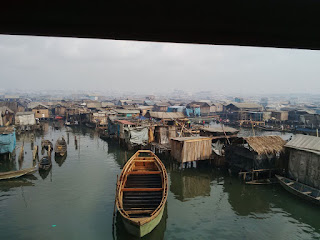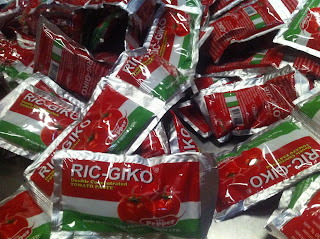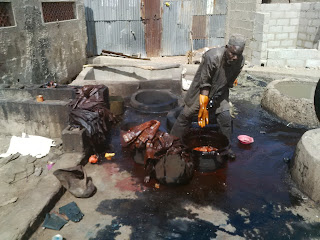Makoko Floating School - A Renewed Hope For This Water Community

Passing through the third mainland bridge in Lagos almost on a daily basis...to work and to church, this slum built on water have never ceased to amaze me, the homes, and of course the floating school...three storey 'building' floating on water Nicknamed the Venice of Lagos, Nigeria's Makoko slum is home to about 100,000 people. The residents who are mostly fishermen live on stilts in the lagoon and move between their houses by canoe...and this is also exactly how the children who attend the Makoko floating school, arrive for their classes every day. The floating school was constructed by a young Nigerian architect who was inspired by the need to chart a new path for people who live in water communities. The movable building is a pyramid structure with a capacity to safely support 100 teachers and students even in extreme weather conditions. Built with recycled empty plastic barrels, locally sourced bamboo and wood, the schools triangular fra...



